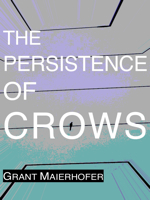The Great Love Bug Migration
by Brad Temple
Copyright ©2005
Prelude
What makes a man a man? Is it the experiences he’s had? Is it the things he’s seen? Or, is it the things he’s done to keep himself alive? No, it’s none of those things. What makes a man a man is what he does to keep himself from dying. I’m not talking about dying physically. What a man does to keep himself physically alive matters not in this world. It’s what he does to stay alive spiritually that makes him a man. A man can put himself in all sorts of situations and know that, nine times out of ten, it was him that got himself there. It’s the decisions he makes that ultimately decide his fate and his purpose in life. So what makes a man a man?
I pondered that question as I stood over my dead friend’s body, ragged and torn by forces more powerful than all the armies of the world. He made a choice–a choice to save a life not his own. And for that very choice, for that very decision, he was more of a man than any man I had ever known. Here I sit, a shell of a man, hollowed by the choices I have made. And here I sit still wondering if I ever became what I see now before me. It haunts my very being. I wonder how I ever got to this place and felt as alone as I do right now. It seems so long ago, but at the same time it feels as though it was yesterday, that I was trying to figure out life for the first time.
Chapter I
I stood at the top of the levee at the far end of my family pond, surveying its vastness and watching the beavers construct another check dam up one of the blackwater creeks that feed the 75 acres of prime private fishing water in the town of Pitalima, Mississippi. My longtime friend, Lem Waters, stood just below the levee by the gate valve, which is now useless, waiting for me to say something. Layers of smoke braided themselves through the darkened woods around Barham Pond with whispers of hickory and pine as the remnants of the burn piles from the clear cutting across the highway smoldered for what seemed like an eternity.
“Goddamn beavers!” I erupted. “What in the hell are they doin’?”
“Who, the beavers?” Lem asked.
“Yeah, the beavers. Didn’t you hear me just say ‘Goddamn beavers!’?”
“Oh…well, what are they doin’?” he asked.
“I don’t know. Apparently seventy-five acres isn’t big enough for ‘em,”
The beaver colony had become somewhat of a problem for our family over the years, to say the least. My dad, Rucker Barham, had inherited the land from his dad, Herb Barham. The list goes on not unlike the Bible, where so-and-so begot so-and-so and so on and so forth. To make a long story short, the Barham family had owned the rather large piece of pine plantation/hardwood forest for over a hundred years. Of course, it wasn’t always a pine plantation.
When the first Barham laid claim to the parcel, it was damn near a wilderness. Mississippi was fresh off the Confederacy, and Pitalima was more or less an island between two serpentine rivers. A Woodland Period Indian mound was poised at the southernmost point of Pitalima, overlooking a cypress slough that was once part of the larger of the two rivers. Fortunately, for the Confederacy, Pitalima happened to be a strategic location for ambushing Union patrol companies along the Natchez Trace. The Confederate encampment consisted of roughly one hundred renegade soldiers and about thirty slaves. The slaves were charged with the task of turning the Indian mound into a munitions dump. Everything from powder kegs and dynamite to bullets and firecrackers were shoved inside the mound. Only four soldiers stood guard over the encampment and slaves while the rest of the troops traveled north to fight the Union patrols.
One hot, August night, the four guards got so drunk, they passed out. The slaves took full advantage of this opportunity and tied up the guards inside the weapons cache. Then, they lit it up.
Now this Indian mound was fairly large. About thirty feet high and a hundred feet long, the hollowed out dirt hill was packed full of every kind of explosive known to man at the time. The sheer power of the explosion could be felt for miles, and the fireball that rose from the destruction was so high and so bright, people said that it cast an orange glow over the entire state.
Whether or not that part is true, nobody can say for sure. But what was left behind was a huge hole in the ground. The explosion was so enormous that it cracked the very bedrock far below the surface. Groundwater seeped and boiled into the crater instantly, filling it within a few hours. The tons and tons of earth hurled into the air by the blast came down in huge piles, completely changing the courses of the two rivers. This definitely was not a good place to hide weapons anymore, so the soldiers left the place for good. Well, all except for one.
Sergeant Tobias J. Barham came back to Pitalima at the end of the War, and built a farm just north of the pond. He had to clear so much timber just to plant crops, he figured he’d give up farming and build the town’s first sawmill. After a while, Tobias noticed his timber quantity dwindling, so he bought some more land adjacent to his own and began cutting and replanting. The timber industry began to grow, and my family had a seat at the head of the table.
The Barham Timber Company would become a leader in the timber industry, but it wasn’t what I wanted to do. I was brought up with down home country values, sent to private school, and was even made Vice President of Sales at the age of eighteen by my dad. But I didn’t care about any of that. All I wanted to do was hunt, fish, and play golf…..and drink heavily.
The beavers chewed their way into the story about the time Tobias Barham started cutting down trees all over Pitalima. If ever there was a beaver heaven, this was heaven on earth for those little bastards. Sticks, branches, logs, and other beaver building implements were strewn from one side of town to the other. Everything was ready for transport to the dam site.
The first known beaver dam was constructed just north of the pond on an offshoot of the smaller river. The area around the pond would slowly flood until the water leveled off. Then, they would build another dam further up the creek, and the process would continue. Eventually, the south end of Pitalima became a swampy area, which was hell on a tree farmer trying to negotiate already rough terrain.
Generations of Barham men fought an endless battle with the beaver colony until the early 1900s. Market hunting and the fur trade had helped to decrease the beaver population almost into extinction, but by the 1980s their numbers were more impressive than ever. Dams went back up almost as soon as they were destroyed. Finally, a solution sprang up.
The U.S. Army Corps of Engineers came to our aid and built a massive levee around the south end of the pond. On the pond side, they installed a tall drainage tower, and on the dry side was a large gate valve connected to a pipe that ran under the levee and into the tower. This was a blessing to the family. We could now control the water level of the pond and keep the beavers from overflowing it. But giant rodents are clever.
It took a few years, but the beavers finally discovered the reason why their dams weren’t working and remedied the situation. They jammed as many sticks, branches, and logs as they could into the drain tower until it was clogged. A few beavers didn’t make it out of the drain and became part of the clog. I fished them out from time to time, but it was a filthy job and interfered with my recreational activities.
The pond itself was only seventy-five acres, but the expanse of the flooded woods was probably one square mile if not more. The levee was still the only thing preventing all of that water from flooding the more bustling city of Herndon, just south of Pitalima.
I clambered down from atop the levee, with great bewilderment. Lem sidled next to me as if to read my thoughts.
“You’ve gotta do something about those beavers man,” Lem said. “They’ve been fuckin’ with you since you were old enough to walk.”
“I know,” I snapped.
I hardly remember it, but when I was young I was nearly killed by beavers. At the age of two, I was walking and talking like I’d done it all of my short life. I’d wander in and out of my parents’ house all day. (My folks gave me that kind of freedom, something some bedwetters may call negligence these days.) One day I ventured far away from the house. I made it all the way up to where the last check dam was at the time. I was playing on the beaver dam when I slipped on a mossy log and fell, slamming my head against a log and falling unconscious at the water’s edge. I laid there undisturbed for a long time until two beavers swam up. The beavers wove me into the dam and left me for dead.
Luckily, my dad and Lem’s dad were both fishing on the pond when they spotted my white cowboy boots sticking out of the dam. By then, I had regained consciousness and was yelling for help. They pulled me from the twisted pile of sticks and put me in the boat.
I can remember my dad screaming, “Goddamn beavers!”
Lem and I walked back toward the highway, away from the levee. The faint drumming of large truck speakers grew into a menacing pounding as we approached the huge keg party I was throwing. I held events like this from time to time. All of my high school friends and people I didn’t even know would come to my place to get drunk and polluted and ride four-wheelers.
This night was just like any other night. I was getting thoroughly trashed and would soon start hunting beavers. The antics usually last until early morning when I break out the gun powder to blow up a dam or two, and the party disperses soon after. For some reason, I decided to go to the shed a little earlier than usual to get the gun powder this time.
The Barham family had been blowing beaver dams for generations and had built up quite the stockpile of demolitions equipment. However, the equipment was crude. Modern beaver dam blasters use high-tech explosives that blow dams safely and efficiently. With us, it was more of a guessing game. An iron pipe, a shotgun primer, a fuse, and a lot of gunpowder were all I needed to blow the dam. But this dam was big.
The beavers were working on a dam that would cause the smaller river to flood around the pond and behind the levee. I had an idea of what they were up to, but it hadn’t crossed my mind to destroy the structure until this night. So I took two twelve-pound canisters of gun powder from the shed and poured them into an iron pipe. I completed the behemoth pipe bomb and rode my four-wheeler up to the huge dam on the other side of the pond.
“I’m tired of these fuckin’ beavers, Lem,” I said with barely comprehensible speech. “I’m gonna blow the shit out of this dam.”
“You think you have enough gun powder there, Conner?” Lem quipped.
I grinned. “We shall see.”
I was so ridiculously drunk, I could hardly see. I had to cover one eye just to keep from seeing double and almost crashed the four-wheeler four times before finally rumbling to a halt beside the dam. I dismounted and stumbled over to the dam. On hands and knees I dug a deep hole in the mud. Laughing hysterically, I lowered the gun powder bomb into the hole and packed it in tight. I only left enough room in the hole for the fuse to light and burn all the way down.
The mud smelled like sewage and was all over my clothes. Gazing back down the trail I saw Lem and the rest of the partygoers trudging toward me.
“Y’all get back!” I blurted. “Get on back…..way back!”
I started the four-wheeler and knelt back down to light the fuse. I figured I had about two minutes before I turned the earth inside-out. I raced back to where the crowd had gathered and killed the engine. No one made a sound except for Lem, who knew how much gun powder I had just shoved into that hole and was giggling like a school girl.
“Shut up,” I whispered as I punched him in the chest.
BOOOOOOOOOM!!!!
No sooner had I turned to punch Lem than the loudest, most deafening burst of sound anyone in Pitalima had ever witnessed came thundering from the depths of the earth. Suddenly, it dawned on me that we may not have gotten far enough back.
“Run!” I screamed. “Run for your lives!”
Just as we moved back, a giant cypress trunk plummeted to the ground and buried itself halfway into the soil. Mud was everywhere. Giant globs of mud and clay fell all around us.
As we made our way back around the pond to the levee, we noticed something terribly wrong.
“What the hell’s that?” Lem asked.
Water was gushing from the highway like Old Faithful, and the levee was giving way. The blast was so powerful that it ruptured the main water pipe to the city and shook the levee loose all at once. Nothing but a small strip of woods lay between the town of Herndon and a tidal wave of muddy water. Luckily, the water displaced over a large area and the flooding was minimal.
It was nearly daylight when the state environmental engineer came to the blast site with Kenner County Sheriff Roy Diller and my dad.
What the hell did you do, Conner?” Sheriff Diller asked.
Dad chimed in. “Yeah son, what in the shit….”
I interrupted, squinting. “A slight miscalculation on the gun powder, Dad.”
“Get your ass in the truck,” Dad said. He grabbed me by the back of my head and flung me into the truck bed.
A few days later, after things cooled down and the water main was repaired, I went back to the pond, which was now empty. A shit-brown Toyota Corolla pulled up just behind the house and rattled to a stop at the edge of the old pond. I walked back to see who it was.
“Hey! How ya doing today,” the driver asked, sticking his head out the window.
“Well, that all depends,” I said, squinting my eyes to see through the dust and sun.
“On what?” he said, climbing out of the car.
“On who’s askin’.”
“Heh. Don’t worry about me. I’m just looking for a few answers.” He shut the door and jogged up the levee to where I was standing.
Sticking out his hand he said, “Preston Peters, Kenner County Journal.”
He was a sickly looking kid, all pasty and skinny. I thought he might burst into flames right there. His hair was sandy brown, collar-length, and looked as if it needed a wash. With his sunglasses pulling his bangs back behind his ears, he was squinting a bit too as the sun continued to beat down on us, reflecting off the drying mud.
“Conner Barham,” I said, nearly breaking his frail little rat claw of a hand. “What brings you out here?”
“I was hoping you could tell me a little bit about what happened out here over the weekend.”
“Why the hell do you want to know that?”
“Well, considering a whole town was flooded in a matter minutes without any sign of rain, I think there may be a story behind it.”
“You goddamn newspaper writers are all the same. Why don’t you write about something worth reading, like literature or history. Nobody cares about the current events of Pitalima or Herndon,” I said as I walked toward the old drain tower. I could tell he was getting flustered and hoped he would leave, but he persisted.
“Look, man. I know who you are, and I know what a couple of people, who were at your party that night, told me. And you’re right. Nobody cares about what goes on in this entire county, but it’s my job to find something interesting and report it. So, indulge me this one time, and tell me why you decided to blow up the dam.”
“You see all those tracks out there?” I asked, pointing to the hundreds of beaver tracks out in the basin. Just a little mud remained around some of the low spots. “From the looks of these tracks it seems as if they’ve been wandering aimlessly in ever-widening circles, often walking with only one front paw. The other paw…likely engaged in scratching their heads, thinking of how to fill the hole with water again.”
“What the hell are you talking about?” Peters asked.
“Goddam beavers,” I murmured. “What?” I said, turning to face him.
“Are you trying to tell me that beavers did this?”
“In a matter of speaking, yes. Yes they did.”
“Well I was told you used a shit-load of gunpowder to blow up a dam- so much gunpowder that the vibrations from the explosion broke the water main and the levee simultaneously.”
“Yeah, so what? So I used a little gunpowder. They made me do it.” I was putting on a show now. Sure, the beavers did piss me off, but it was the booze that caused the mishap. Make no mistake about it. This, however, was much more fun.
“You said the beavers made you do it?” he said, reiterating my statement.
“That’s right. Those little bastards are trying to control my life. I can hear ‘em at night, planning and scheming. They want me to get angry, but they weren’t expecting this. Ha! That’ll teach them to mess with a Barham, dammit.”
The skinny bastard was becoming uncomfortable. He jotted down a few notes and began to turn back toward his car.
“Okay, thanks a lot. I think I’ve got what I need here. You take it easy.” He walked back to his heap and slammed the door.
“I’ll take it however I can get it!” I yelled over the levee as he cranked the engine.








